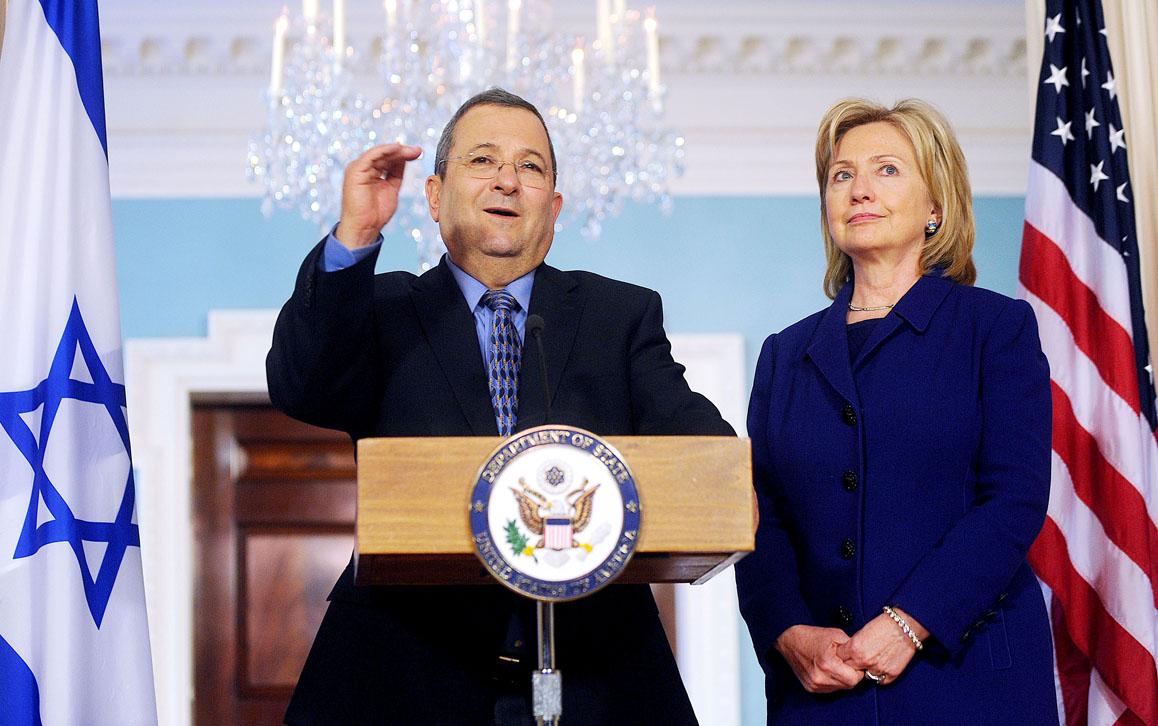All Talks and No Action Makes Peace a Long Shot
July 8, 2011

Published: April 1, 2010
Instead of heeding Theodore Roosevelt’s advice, once again, American officials are speaking loudly but carrying a soft stick in regards to restarting peace negotiations between Israel and the Palestinian Authority.
Early in his administration, President Barack Obama pushed Israel to halt the construction of Israeli settlements within the Occupied Palestinian Territories, a key Palestinian precondition to resuming peace talks. Yet, during Vice President Joseph Biden’s diplomatic visit to the Middle East in early March, the Israeli Interior Ministry announced its authorization of the construction of 1600 new housing units for Jews in East Jerusalem. Additional plans for Jewish settlements in East Jerusalem, which Palestinians hope to make the capital of a future state, were publicized on March 23, around the same time Israeli Prime Minister Benjamin Netanyahu was meeting with Obama in Washington.
The ill-timed revelations have threatened the latest U.S. efforts to revive the peace process, and simultaneously strained U.S.-Israeli diplomatic relations. Clearly, the best thing America can offer her friend Israel, in terms of establishing national security and peace with the Palestinians, is tough love.
Perhaps, Obama will soon recognize the true significance of the Arab-Israeli conflict, and how the stability of the region depends, not just on Iran’s nuclear program or the U.S. wars in Afghanistan and Iraq, but on Israelis and Palestinians making peace. Maybe Obama will refocus his energies, give certain foreign officials a stern talking to and make some actual progress. Or maybe he’ll get stuck in the Mid-East mud along with the last few American presidents and let Israel keep holding the hose.
As the highest-ranking U.S. official to visit Israel and the West Bank since Obama took office, Biden recently met with Israeli and Palestinian leaders, speaking extensively on the need to improve conditions necessary for peace. He even went as far as to say that Israel’s identity as a Jewish and democratic state is threatened by the nation’s failure to achieve peace with the Palestinians. However, Biden’s serious words about the necessities of sacrifice and dedication to peace and security on the part of both sides, instead of being backed up by a version of TR’s big stick diplomacy, are being meagerly propped up by the Obama administration’s lackluster Middle East foreign policy, essentially composed of balsa wood.
During a joint press conference with Palestinian Authority President Mahmoud Abbas, Biden said, “A historic peace is going to require both the Palestinians as well as the Israelis as well as their leaders to be historically bold.” Of course the two main parties must be bold, not to mention ready, willing and able. But, unfortunately, the U.S. officials involved in restructuring and implementing a Mid-East peace process are failing to be bold enough to bring Israeli and Palestinian leaders to the same negotiating table, most likely also made of balsa.
Plans for indirect (or proximity) talks, during which special envoy for the Middle East George Mitchell would act as a go-between for Israeli and Palestinian negotiators, have been derailed following Israel’s recent announcements concerning the construction of new Jewish settlements. Based on history, it seems unlikely that the U.S. will be able to act as an effective arbitrator, one willing to invoke consequences if a state party fails to keep its end of the bargain.
“The United States will always stand with those who take the risk that peace requires,” Biden said during his media address with President Abbas. Regardless of Israel or the Palestinians’ willingness, or lack thereof, to risk immediate security for long-term peace, the U.S. needs to take some of the diplomatic risks that peace requires, such as holding the Israelis accountable when they renege on settlement freezes. Israel must be beholden to real political consequences beyond a verbal slap on the wrist from the White House or a few shaming words about destroying necessary trust from the Vice President.
While many, including the Obama administration, call for a two-state solution, the plan seems unlikely to create a lasting peace when Israel continues to encroach on the limited territory that the international community recognizes as belonging to the Palestinian people. A future Palestinian state would be far from viable when the borders would either continue to separate Gaza and the West Bank or create such a gerrymandered nation in order to connect Gaza and the West Bank as to infuriate both Palestinians and Israelis alike. Land swaps will probably be necessary, but equally infuriating for all parties involved.
Israel and the U.S. too often speak of peace, sometimes superficially, sometimes more seriously, as in recent days, but too infrequently transform their verbal commitments into realities. Israeli and American leaders, and Palestinians as well, must prove that they are willing to not only work toward peace talks, but implement peace-making policies, carry them out and impose penalties on any state party that does not play by the established rules. These leaders may speak boldly, but they are carrying soft sticks, sticks unlikely to support a durable peace. Excuse the metaphorical stretch, but it may be time to cut down some oaks and deliver them to the Middle East, courtesy of any American official willing to carry a stick with some weight to it or build a finely constructed negotiating table.












